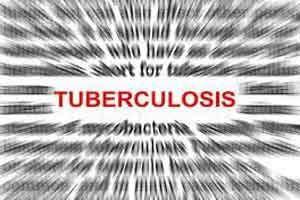- Home
- Editorial
- News
- Practice Guidelines
- Anesthesiology Guidelines
- Cancer Guidelines
- Cardiac Sciences Guidelines
- Critical Care Guidelines
- Dentistry Guidelines
- Dermatology Guidelines
- Diabetes and Endo Guidelines
- Diagnostics Guidelines
- ENT Guidelines
- Featured Practice Guidelines
- Gastroenterology Guidelines
- Geriatrics Guidelines
- Medicine Guidelines
- Nephrology Guidelines
- Neurosciences Guidelines
- Obs and Gynae Guidelines
- Ophthalmology Guidelines
- Orthopaedics Guidelines
- Paediatrics Guidelines
- Psychiatry Guidelines
- Pulmonology Guidelines
- Radiology Guidelines
- Surgery Guidelines
- Urology Guidelines
TB tricks bodys immune system to make people infectious

London : Tuberculosis (TB) tricks the immune system into attacking the bodys lung tissue, which makes the person highly infectious through coughing and the bacteria then spreads by aerosol droplets to other individuals, a new study says.
The researchers believe that current ideas about how tuberculosis develops in patients may be incomplete and that, in fact, infection causes autoimmunity, where the immune system reacts incorrectly to its own tissue.
"We are not disputing that the immune system mainly targets the bacteria to fight it off, but we are suggesting that there is more to the story," said lead researcher Paul Elkington, Professor at University of Southampton in Britain.
"It seems that TB tricks the immune system into damaging our own lung tissue, which therefore makes the person highly infectious through coughing and the TB then spreads by aerosol droplets to other individuals," Elkington explained.
The research team conducted a review of published studies and found evidence suggesting that an autoimmunity process develops in TB.
"There is also a group of patients who develop a range of symptoms, such as eye inflammation, joint inflammation and skin rashes, that are not explained by current TB disease concepts," Elkington said
"These symptoms are usually associated with diseases like rheumatoid arthritis and Crohn's disease, which led us to believe autoimmunity plays a key role in the TB disease process," Elkington noted.
If the hypothesis of the Southampton research team, published in the journal Trends in Immunology, is proved in further research, the discovery could have major implications for the design of new vaccines and drug treatments.
Tuberculosis kills more people than any other infectious disease, and the causative bacterium, Mycobacterium tuberculosis, is becoming increasingly resistant to antibiotics used to treat the infection.

Disclaimer: This site is primarily intended for healthcare professionals. Any content/information on this website does not replace the advice of medical and/or health professionals and should not be construed as medical/diagnostic advice/endorsement or prescription. Use of this site is subject to our terms of use, privacy policy, advertisement policy. © 2020 Minerva Medical Treatment Pvt Ltd